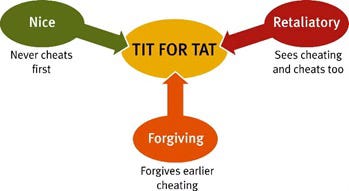Tactical Harmony: Creating Success with Game Theory Dynamics
Panellus: The Hot Spot #14
The Game of Business and Marketing Strategy: Cooperate or Defect?
In the cut-throat world of business, determining the optimal strategy can feel like a delicate game of chess. Do you model your next move after successful competitors, or blaze your own trail? The field of game theory provides insights into this conundrum by analysing the dynamics of strategic decision-making.
The seminal work on game theory is the "prisoner's dilemma" thought experiment. Two suspects are separated and offered a deal - if one betrays (defects) while the other remains silent (cooperates), the betrayer goes free while the cooperative one receives a harsh sentence. If both defect, they both receive a moderate sentence. And if they both cooperate, they receive a light sentence. In this single interaction, pure self-interest would dictate defection as the optimal play for both parties.
At first glance, game theory suggests that defection may seem like the optimal choice. After all, why not emulate the strategies that have brought others success? However, as we delve deeper into the intricacies of repeated interactions, a different picture emerges. Cooperation, rather than defection, often proves to be the superior long-term strategy.
However, game theorists have shown that in repeated games with the same players over an indefinite timeline, a strategy of conditional cooperation emerges as superior. The famous "tit-for-tat" strategy (demonstrated superbly in Axelrod’s tournament over 40 years ago; cited below) starts with cooperation, and then simply mirrors the previous moves of the other player - cooperating if they cooperated, and defecting if they defected. This allows for an "island of cooperation" to be established when facing a likewise cooperative opponent.
Adapting this to the business world, game theory does not advise modelling your every move after competitors. While defecting (embracing cut-throat tactics) may deliver short-term gains, in the long game of establishing an enduring successful brand, cooperation is king. This is not to suggest being naive - swift retaliation should follow any breach of the cooperative implicit agreement by a rival.
One of the key takeaways from game theory is the importance of patience and long-term thinking. Success in business is not a sprint, but a marathon. By focusing on strategies that prioritise sustained growth and customer loyalty over short-term gains, companies can position themselves for lasting success.
The insight is that businesses should embrace a balanced approach - leading with niceness and forgiveness when able, but being prepared to retaliate promptly when competitors defect. Developing a reputation for fair, ethical business practices attracts similarly cooperative partners and helps establish a stable "island of cooperation" amid the stormy seas of competition.
So how can business leaders and marketers alike employ these findings?…
The Tit-for-Tat Approach
The famous tit-for-tat strategy - starting with cooperation and then mirroring your competitor's previous moves - can be an excellent model for competitive strategy. Lead with fair, ethical practices but be prepared to retaliate swiftly against any uncooperative behaviour from rivals. This allows you to establish islands of cooperation when possible while protecting your interests.
The Path of Cooperation
While the prisoner's dilemma suggests defection may deliver short-term gains, game theory shows that prolonged cooperation is superior for building an enduring, successful brand. Embrace cooperative practices like transparent pricing, ethical marketing, quality guarantees and sustainable policies. This attracts cooperative partners and customers.
Patience is Paramount
Businesses must make decisions not just for the current quarter, but with a multi-generational outlook. Like a chess grandmaster, think multiple moves ahead. Short-term losses or conservative plays may be necessary to set up greater long-term victories and brand equity.
Reputation is Everything
In repeated games with the same players over time, your reputation is paramount. Develop a reputation for being a fair, ethical operator. This allows islands of stable, prosperous cooperation to emerge organically with like-minded competitors, suppliers and customers.
By adopting the insights of tit-for-tat strategies, prolonged cooperative gameplay, and exercising patience with a long-view, businesses can navigate the complexities of competition to establish and maintain market leadership.
Conclusion:
Ultimately, game theory reinforces that building a legacy brand requires immense patience. Like a masterful chess player, businesses must think multiple moves ahead, recognising that short-term losses may lead to greater long-term victory. Thriving companies play the infinite game, making decisions with a multi-generational outlook.
In many ways, life itself is the greatest game, containing an infinite series of micro-games and decisions. By studying game theory, we gain a versatile analytical framework to decipher the optimal strategies for navigating its complexities. The next move is ours - will we embrace the high road of cooperation, or give in to the temptation of defection?





